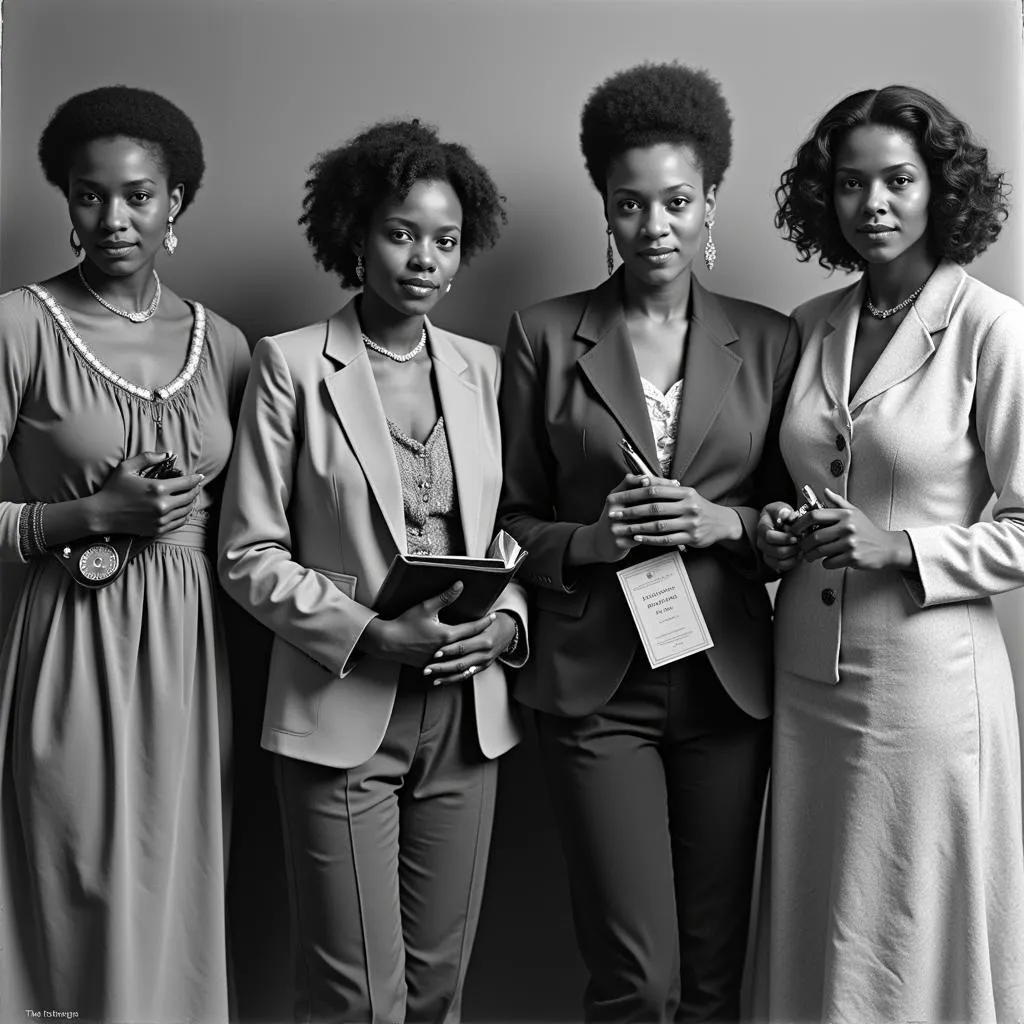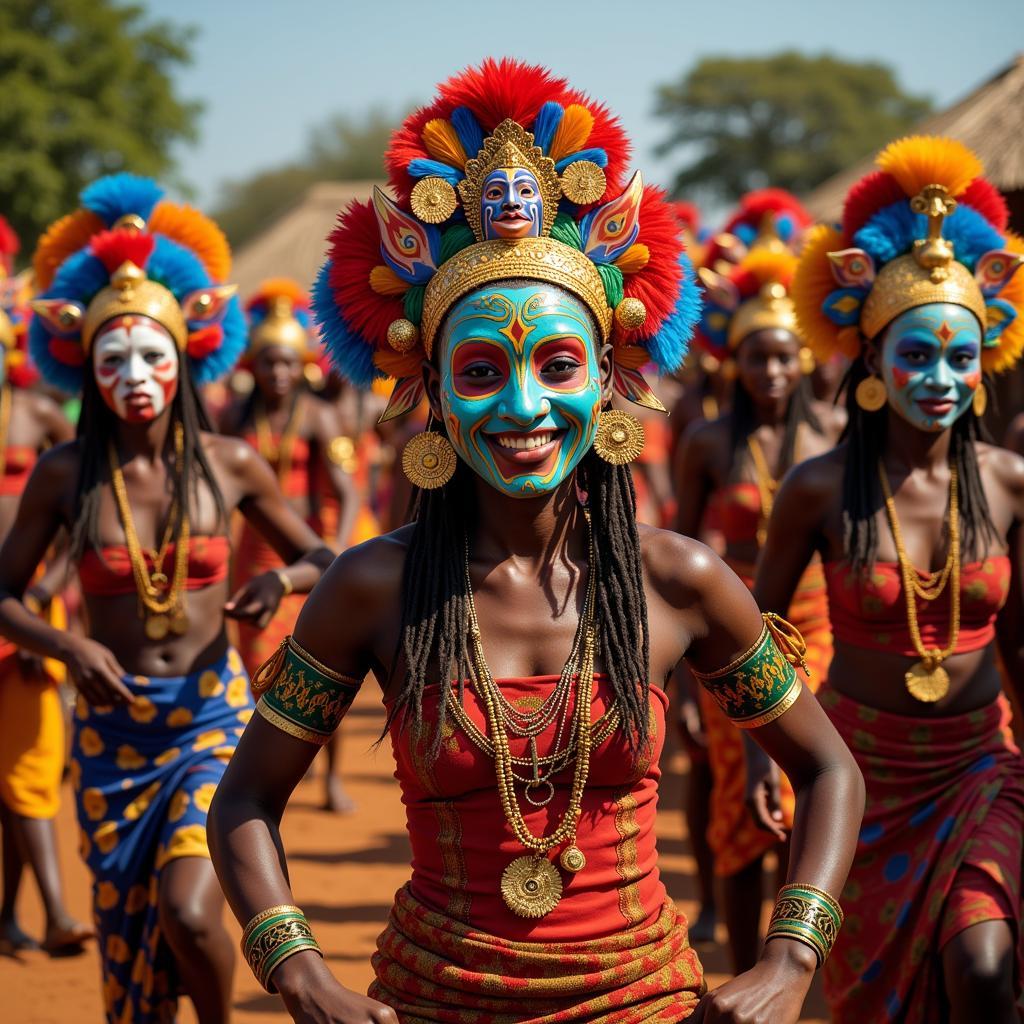African Princess: Exploring Royalty, Tradition, and Modern Influence
African Princesses hold a unique position, embodying both ancient traditions and modern influences. They represent a rich tapestry of cultures, histories, and societal structures across the diverse continent. From the regal elegance of ancient kingdoms to the dynamic roles they play today, exploring the lives and legacies of African princesses offers a captivating glimpse into the heart of Africa. For many, the term “African princess” evokes images of grace, power, and a deep connection to their heritage. Let’s delve into the fascinating world of these remarkable women.
One compelling aspect of African royalty is the naming tradition. Names often carry deep meaning, reflecting not only lineage but also hopes and aspirations for the future. If you’re interested in learning more about these powerful names, check out African baby girl names meaning princess.
The Historical Significance of African Princesses
Throughout history, African princesses have played crucial roles, not merely as symbols of royal lineage but as active participants in political, social, and economic life. In many kingdoms, they held significant power, influencing decisions related to trade, diplomacy, and even warfare. Their education often emphasized leadership skills, diplomacy, and a deep understanding of their cultural heritage. They were often groomed from a young age to be future leaders, advisors, or even rulers in their own right. The influence of these princesses extended beyond the palace walls, shaping the lives of their people and contributing to the rich tapestry of African history.
Princesses often served as vital links between different communities and kingdoms, fostering alliances and promoting peaceful relations. Their marriages were often strategic, cementing political ties and ensuring the stability of their kingdoms. They also played important roles in preserving and promoting the cultural heritage of their people, supporting the arts, and sponsoring religious ceremonies. Their contributions have often been overlooked, overshadowed by the more prominent roles of kings and male leaders. However, a closer look reveals the significant impact they had on shaping the destinies of their communities.
African Princesses in the Modern Era
Today, many African princesses continue to uphold the traditions of their ancestors while navigating the complexities of the modern world. They are often involved in philanthropic endeavors, championing causes related to education, healthcare, and women’s empowerment. Some have embraced entrepreneurship, using their platforms to promote economic development and create opportunities for their communities. Many also work to preserve and promote African culture and traditions, ensuring that their rich heritage is passed down to future generations. This blend of traditional values and modern perspectives allows them to address contemporary challenges while staying connected to their roots. You might be interested in African American princess bedding to add a touch of royal elegance to your home.
What are Some Famous Examples of African Princesses?
Many African princesses, past and present, have made significant contributions to their communities and countries. While their stories are not always widely known, they offer powerful examples of leadership, resilience, and cultural preservation. Researching these inspiring figures provides a deeper understanding of the diverse roles and responsibilities that princesses have held throughout African history.
Who are some Influential African Queens?
It’s important to acknowledge the powerful influence of African queens alongside princesses. For a fascinating look at the names of these regal figures, check out African king and queen names. These names often reveal historical significance and cultural values.
The Cultural Significance of African Royalty
The concept of royalty in Africa is deeply intertwined with cultural values and beliefs. It represents more than just political power; it embodies spiritual authority, ancestral connections, and the continuity of tradition. Royal families are often seen as custodians of cultural heritage, responsible for preserving and transmitting the customs, rituals, and values of their people. This deep connection to culture is reflected in the elaborate ceremonies, rituals, and regalia associated with African royalty.
For those interested in exploring more names with deep meaning, you can find a list of African American baby girl names with meanings. And to learn more about potential African American Disney princesses, visit this page: African American Disney princess.
Conclusion
African princesses, both past and present, embody a rich tapestry of tradition, resilience, and modern influence. They represent a powerful force for cultural preservation, social progress, and leadership within their communities. By exploring their stories and legacies, we gain a deeper appreciation for the diverse cultures and histories of Africa. Their impact extends beyond the confines of royalty, shaping the future of the continent and inspiring generations to come.
FAQ
- What are the traditional roles of an African princess?
- How have the roles of African princesses evolved in modern times?
- Are there any famous African princesses I should know about?
- What is the cultural significance of royalty in Africa?
- Where can I learn more about African royal families?
- How do African princesses contribute to their communities today?
- What are some resources for learning more about African history and culture?
Need support? Contact us 24/7: Phone: +255768904061, Email: [email protected], or visit us at Mbarali DC Mawindi, Kangaga, Tanzania.


